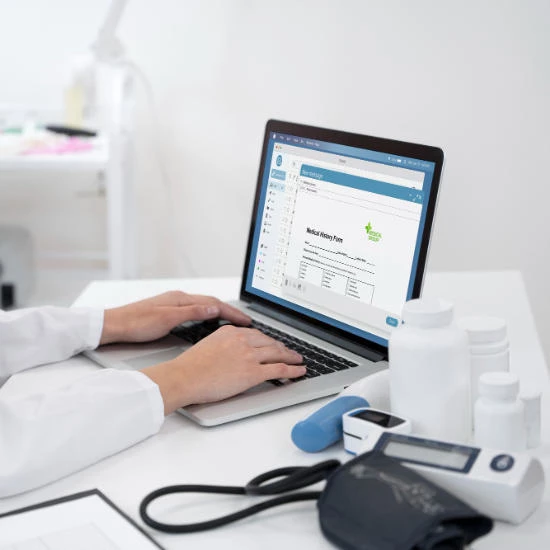Appointment Scheduling
This allows for the scheduling of appointments at the hospital for patients to see doctors or specialists, which helps to avoid overlapping appointments and ensuring that all patients are seen on time.
It sounds really tough. If you've found your way to this page, you are aware of the difficulty of managing a hospital as a whole properly. It's an important task but can become unmanageable at times.
When it comes to medical care, time is everything. Consider how serious it would be if there was even a small error or delay in the patient treatment process or data management. Most of the hospitals nowadays rely on hospital management systems to simplify their operations and effectively manage patient records.Utilizing hospital administration software lets you get the most out of your efforts.
For healthcare organizations, it is a wise choice because it has the potential to improve the standard and success of patient care notably.
It can manage hospital data and information about patients, treatment history, inventory, finance, billing & many more which helps the procedure be carried out efficiently and quickly.
An Hospital Management System is necessary when looking at all of the different areas and divisions that make up a hospital.

HMS digitizes all processes and makes them entirely paperless, whether the pharmacist needs to create a bill or the doctor needs to write a prescription. Also, a hospital's departments are more effectively connected to one another, which simplifies the process even more.
HMS integration ensures high data protection and data retention. By getting a complete and fully automated HMS, your data remains safe and secure from unauthorized accesses and data sources. What’s more significant is that you’re using the most up-to-date system with central controls.
An Hospital Management System allows you to easily access all patient-related information on a system with just a few clicks. Easily you can access information such as Patient history, Patient seatings, Engaged doctors, Test results, Billing information.
Hospitals can save a lot of money by using hospital management software (HMS). It reduces administrative expenses, improves the use of resources, and reduces the amount of medical waste. An HMS also improves revenue sources by keeping bills on time and reducing claim rejections.
By offering real-time data on a wide range of metrics, such as patient volume, occupancy, and revenue, a CMS can provide you with valuable insights into your operations.This helps you to optimize resources, simplify procedures, and make data-driven decisions.
A project discovery stage can help you avoid building the wrong product, and we can help you get the discovery stage right. Let’s start with a free call.
This allows for the scheduling of appointments at the hospital for patients to see doctors or specialists, which helps to avoid overlapping appointments and ensuring that all patients are seen on time.
It’s like going to the doctor’s office to fill out appointment forms. This feature gathers and stores important patient information, including personal information and medical information.
It allows patients to communicate with their doctors or consultants remotely, without having to visit the hospital. It’s like having a video conference call with your doctor or consultants.
This helps the hospital keep track of patients' needs and inquiries, making sure everyone gets the attention they need, like a helpful reminder when it's time for a check-up.
This feature takes care of the financial side of the hospital. It makes sure that patients are billed correctly and that the hospital is getting revenue for the services it offers.
It is the feature of keeping track of inventory of hospital supplies and equipment to ensure that patient needs are met. It organizes and records patient care in the hospital.
It assists the hospital in the management of its employees, ensuring that all employees are aware of their job responsibilities and the performance of their work.
This makes it easy for multiple branches of hospital to connect to each other and share information. It also connects with other systems the hospital uses, like labs and pharmacies.
This feature allows you to gain insight into different areas of hospital operations by analyzing data reports. It helps you to identify trends, simplify processes, and make informed decisions to improve patient care.
Hospital Management System (HMS) is necessary to the delivery of modern healthcare solutions to your patients. It can increase patient outcomes, lower medical errors, and improve the overall quality of care. It allows hospitals to have a centralized platform to manage their operations, automate processes, and improve communication.